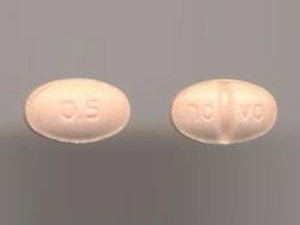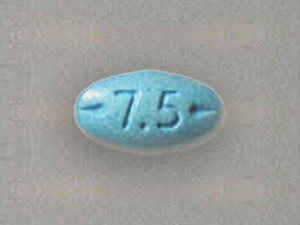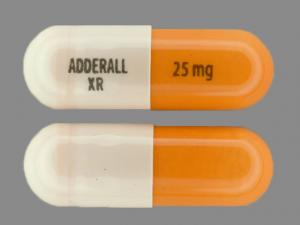Description
What is Demerol?
Demerol acts as a powerful opioid that doctors prescribe for moderate to severe pain.
It works by attaching to receptors in the brain, altering how the body perceives pain signals.
Doctors often use it when other, milder medications are currently ineffective in relieving severe pain.
Patients receive this medication in tablet, liquid, or injection form, depending on the medical situation.

Because it begins to work quickly, healthcare professionals administer it during or after surgical procedures.
Although it works quickly, the effects of Demerol only last about two to four hours.
However, doctors limit its use because long-term use poses serious and potentially dangerous health risks.
In particular, they avoid long-term use because normeperidine, which increases the risk of seizures when taken in combination, also increases the risk of seizures.
Because of this risk, professionals closely monitor patients currently taking this opioid.
Additionally, patients often experience dizziness, nausea, or drowsiness when using Demerol regularly.
Some users also experience constipation or vomiting, which are still common side effects of treatment.
It is important to be aware that people sometimes become dependent on Demerol, raising concerns about addiction and abuse.
What is Demerol used for?
It is currently used to treat moderate to severe pain by altering the way the brain perceives pain signals.
Doctors prescribe it for short-term relief, particularly after surgery or during painful diagnostic procedures.
Patients often receive it when other opioids cause unwanted or intolerable side effects.
Healthcare professionals closely monitor its use, as it poses serious risks with prolonged exposure.
It effectively relieves severe labor pain under specific conditions, as advised by healthcare professionals.
Due to possible neurotoxic reactions, medical personnel generally avoid long-term treatment with Demerol.
They also closely monitor patients to avoid seizures and confusion associated with long-term use.
Although it works quickly, its safety decreases when used for more than a few days at a time.
This is why specialists recommend alternative opioids when pain management requires long-term therapy.
Despite its effectiveness, its use is minimized due to its high addictiveness and potential central nervous system toxicity.
Furthermore, pharmacists advise patients of the interactions between Demerol and other central nervous system depressants.
Physicians warn against combining it with alcohol or tranquilizers, as these can dangerously suppress breathing.
When administered correctly, it provides powerful but temporary pain relief in clinical and surgical settings.
Is demerol a narcotic.
Demerol acts as a narcotic by binding to opioid receptors in the brain to reduce pain.
It is currently used in many medical settings to relieve moderate to severe pain.
Because it acts as an opioid pain reliever, it also carries a risk of addiction and dependence.
It causes sedation and slows breathing, which can lead to dangerous side effects.
Therefore, doctors prescribe it with caution and closely monitor patients during treatment.
Demerol interacts poorly with certain medications, particularly MAOIs, increasing the risk of complications.
Because of these concerns, healthcare providers are increasingly opting for safer pain treatments rather than relying on Demerol.
In general, it continues to act as a narcotic, but with important precautions and limitations.
Is it still used?
It is becoming less and less used in the medical world due to the emergence of safer pain relievers.
Doctors prefer other opioids such as morphine and hydromorphone for the treatment of moderate to severe pain.
At the same time, it causes more side effects, including nervous system problems and seizures, especially with prolonged use.
It produces toxic byproducts that can accumulate in the body and lead to complications.
As a result, many healthcare providers limit its use to specific situations.
For example, it remains useful during certain surgeries when other medications are unsuitable.
At the same time, hospitals closely monitor patients to avoid dangerous interactions with other medications.
In general, healthcare professionals are moving away from Demerol and turning to safer alternatives for pain management.
Is it an opioid?
Demerol functions as an opioid medication that combats pain by targeting brain receptors.
It permanently binds to specific opioid receptors to reduce discomfort.
Because of this action, doctors regularly prescribe it to relieve moderate to severe pain.
Additionally, it affects how pain signals are processed in the nervous system.
Patients often experience sedation and reduced pain due to these effects.
Furthermore, it is used with caution to avoid the side effects often associated with opioids.
Therefore, healthcare providers closely monitor patients while administering this medication.
However, patients must be constantly monitored to avoid side effects such as dizziness, nausea, and respiratory depression.
Hospitals primarily reserve it for emergencies when other pain relievers prove ineffective.
Given the availability of safer alternatives, most healthcare providers are gradually eliminating it from their routine care plans.
Even with strict guidelines, some institutions still use it under careful supervision in certain conditions.
Ultimately, healthcare providers prefer safer options but still recognize Demerol’s potential for rapid pain relief.
This is why healthcare providers only prescribe it when other, safer opioids do not work as expected.
Users should avoid alcohol, tranquilizers, and certain antidepressants while taking Demerol.
In particular, combining it with MAOIs causes potentially fatal interactions in certain vulnerable patients.
Because of these serious risks, physicians carefully evaluate each patient’s complete medical history before prescribing.
Currently, many medical experts prefer alternative pain relievers that offer fewer risks and are safer for long-term use.
Despite its potency, it is no longer used as a first-line opioid for the treatment of chronic pain.
How strong is Demerol?
Demerol acts as a powerful opioid that treats moderate to severe pain.
It binds to opioid receptors in the brain and spinal cord, altering the perception of pain.
Compared to morphine, it is less potent at equal doses, which is why it is often considered weaker.
For example, 100 mg of it is approximately equivalent in strength to 10 mg of morphine.
Furthermore, it relieves pain for a short period of time, usually two to four hours.
Because of this short duration of action, doctors prefer Demerol, primarily for short-term pain relief.
It carries risks due to side effects and toxic metabolites, which is why many doctors avoid its long-term use.
Therefore, it works well for acute pain but is not recommended for long-term treatment.
How is Demerol taken?
Demerol is usually administered by injection, either into a muscle or directly into a vein.
Some doctors prescribe it in tablet or liquid form to be taken orally, although this is less common.
When using this medication, healthcare professionals carefully determine the dosage based on the patient’s condition and needs.
Therefore, patients must strictly follow the prescribed instructions to avoid serious side effects or risks.
At the same time, healthcare professionals closely monitor patients to prevent addiction or abuse.
In general, people take this medication with caution and maintain regular contact with their doctor for safe use.
What are the side effects of Demerol?
Demerol causes common side effects, such as drowsiness and dizziness.
It also causes nausea and vomiting in many users, which can be uncomfortable.
This medication causes constipation and dry mouth, which affects digestion and comfort.
Some people experience sweating and headaches, which worsen their discomfort.
At the same time, the drug makes some people feel weak and tired, which decreases their energy levels.
More seriously, this medication can slow down breathing in some cases, which is very dangerous.
The medication also causes allergic reactions such as swelling and itching in some users.
In addition, the drug increases the risk of epileptic seizures, especially with prolonged use or high doses.
Some people also develop mental changes such as confusion and hallucinations.
In addition, people become dependent on the drug and experience withdrawal symptoms after stopping.
At the same time, blood pressure drops, which causes dizziness when standing up quickly.
Finally, Demerol, when combined with certain other medications, causes serotonin syndrome, with serious symptoms such as muscle stiffness and a rapid heart rate.
If serious side effects occur, immediate medical attention is necessary to ensure safety.
Is Demerol Addictive?
This medication is addictive because it belongs to the opioid class, a highly addictive group.
When people use this medication regularly, their bodies develop a tolerance and require higher doses to feel the same effects.
Additionally, they experience physical dependence, making it difficult to abruptly stop taking the drug without experiencing withdrawal symptoms.
Therefore, doctors prescribe this medication with caution and closely monitor patients to prevent abuse.
People often experience cravings that push them to continue using the drug despite the negative consequences.
Therefore, it becomes increasingly important to strictly follow its guidelines when using Demerol.
In general, the drug creates a risk of addiction when not managed properly or used for a long time.
Can Demerol interact with other drugs?
Demerol often interacts with other medications, altering how each drug works.
For example, it increases sedation and slows breathing when combined with alcohol or other sedatives.
Demerol increases the risk of serotonin syndrome when combined with antidepressants such as SSRIs or MAOIs.
At the same time, this medication increases the risk of seizures when taken in combination with certain antipsychotics or antidepressants.
Its functioning is affected when drugs that affect liver enzymes, such as CYP3A4 inhibitors, are involved.
Therefore, it is always important to consult a doctor before using Demerol with other medications.
This cautious approach prevents dangerous interactions and promotes safer treatment outcomes.
Who should avoid Demerol?
People should avoid this medication if they are allergic to meperidine or similar opioids.
Again, People with serious breathing problems, such as asthma, are at increased risk because the drug suppresses their breathing function.
Next, patients with seizures are at increased risk of seizures when using Demerol.
Also, people currently taking medications such as MAO inhibitors or certain antidepressants are at risk of dangerous interactions, which doctors strongly warn against.
People with serious liver or kidney problems also experience problems because their bodies do not process the drug properly.
Now, pregnant or breastfeeding women are advised not to use this medication unless closely monitored by a healthcare professional.
Finally, people struggling with addiction or with a history of substance abuse should be cautious due to the high risk of addiction.
Therefore, doctors recommend consulting a doctor before starting to take Demerol to ensure safety and avoid complications.
FAQ Demerol:
Is Demerol addictive?
Yes, like other opioids, it has a high risk of addiction and abuse.
Can you overdose on Demerol?
Yes, an overdose can cause respiratory failure, coma, or death.
Which drugs have dangerous interactions with Demerol ?
Benzodiazepines, alcohol, and MAO inhibitors increase the risk of overdose and serotonin syndrome.
Who should not use Demerol?
People with asthma, seizures, kidney/liver disease, or a history of addiction.
Is it safe during pregnancy?
No, Demerol can cause neonatal withdrawal symptoms in newborns.
Why is Demerol less commonly prescribed these days?
Because of the risk of toxicity, safer opioids such as morphine are preferred.
Can Demerol cause serotonin syndrome?
Yes, especially in combination with SSRIs, SNRIs, or MAOIs.
What should I do if I miss a dose?
Take Demerol as soon as possible, but skip it if it’s almost time for your next dose. Never take a double dose.
How should Demerol be stored?
In a secure, locked place, away from others, to prevent misuse.





Reviews
There are no reviews yet.